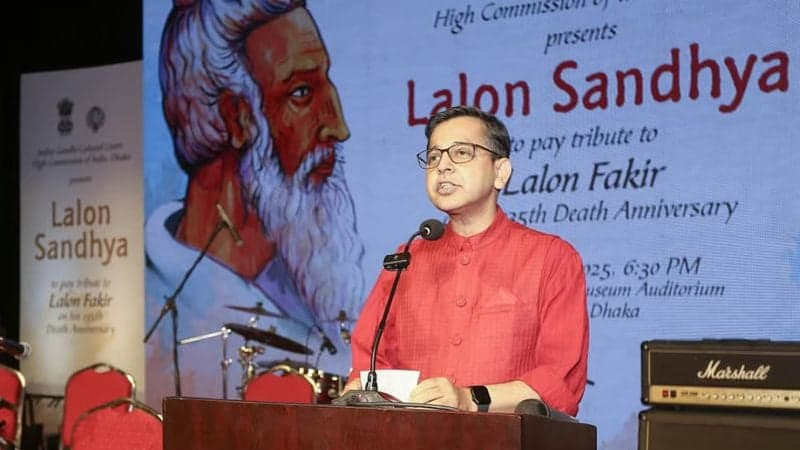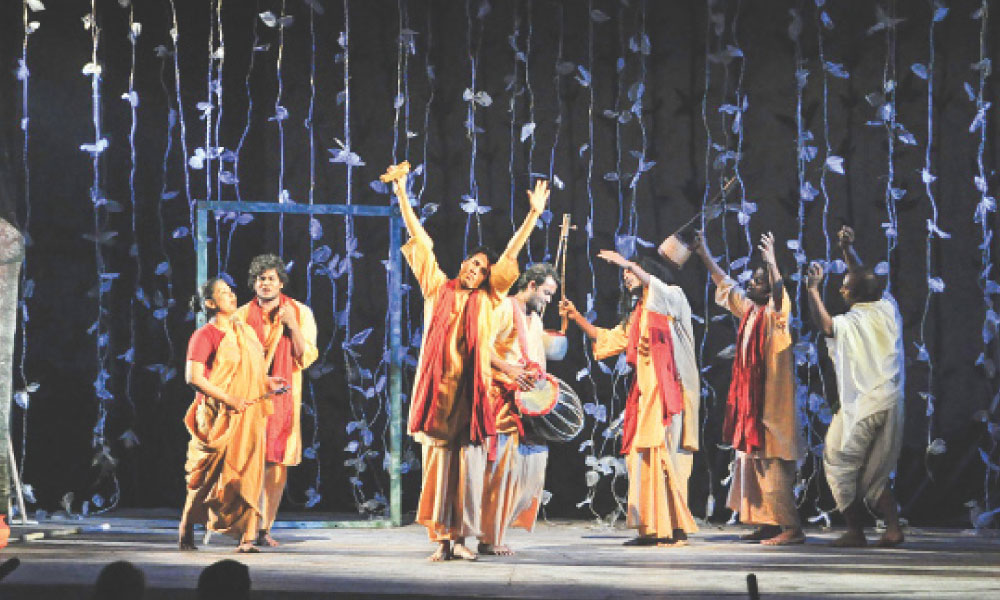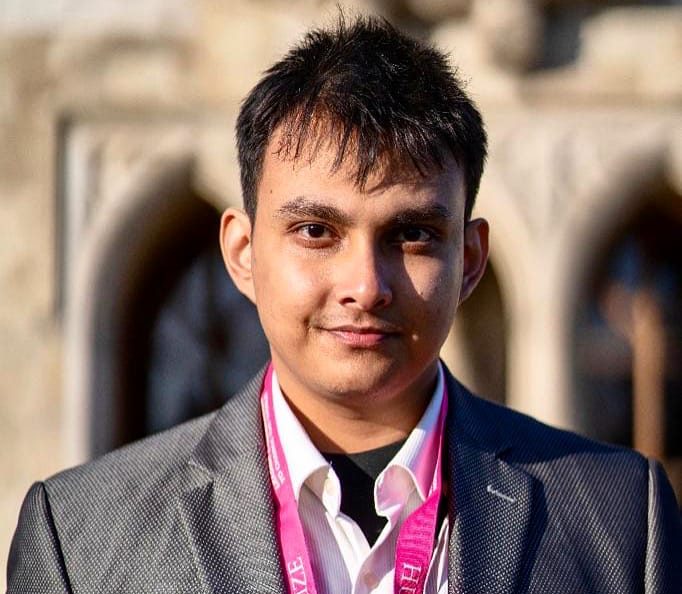“Lalon Sandhya” in Pranay Verma’s Address: A Tribute and Confluence of Melody Organized by the Indian High Commission

To mark the 135th death anniversary of Fakir Lalon Shah, the Indian High Commission, through the Indira Gandhi Cultural Centre, organized a musical evening titled “Lalon Sandhya” on Thursday, 16 October 2025, at the Liberation War Museum Auditorium in Dhaka. The program paid tribute to the memory of the “Queen of Lalon Geeti,” Farida Parveen (1954–2024). In his opening remarks, High Commissioner Pranay Verma underscored the shared humanist heritage of India and Bangladesh and the enduring relevance of Lalon’s philosophy of inclusivity.
The Event and Its Purpose
The aim was to remember and embody the timeless philosophy of Fakir Lalon Shah—humanist mystic, philosopher, and poet. Born in Kushtia, Lalon’s songs and ideas fortify the joint cultural heritage of India and Bangladesh—religious harmony, humane unity beyond caste and class, and the syncretic humanist ethos of the Bhakti–Sufi–Fakir traditions. His music reminds people of the values of peace, tolerance, and inclusion.
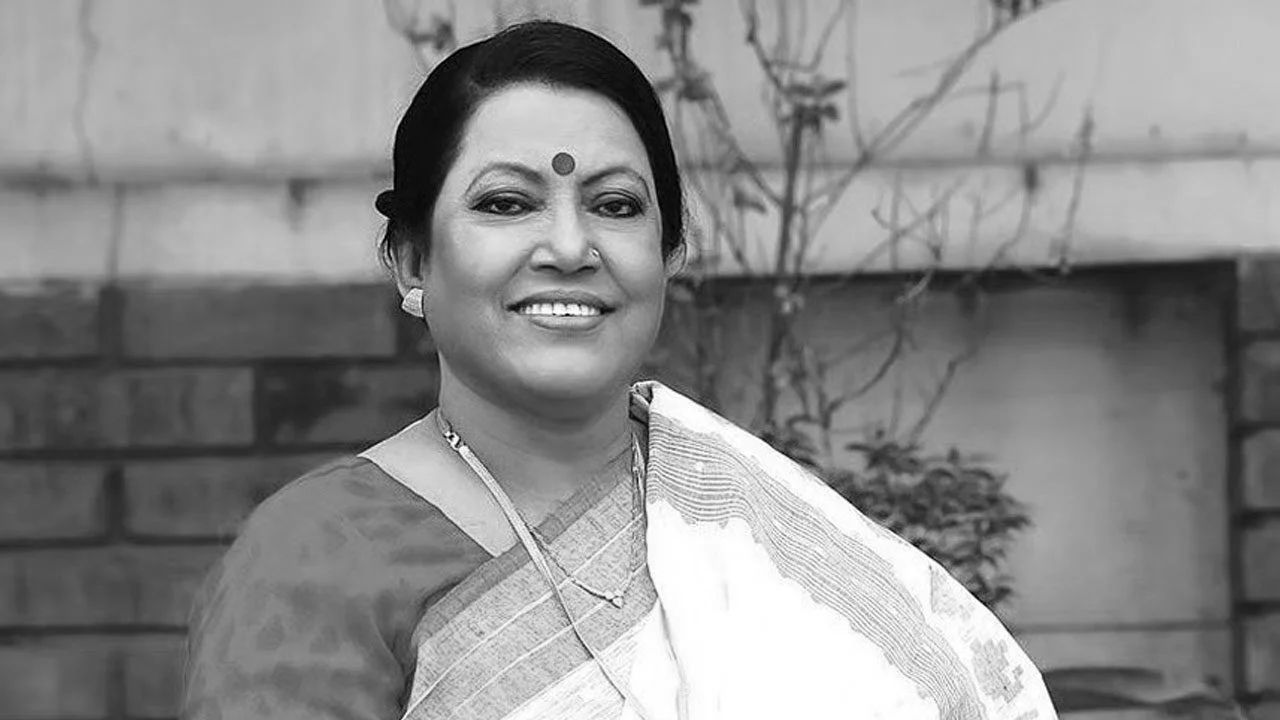
Tribute to Farida Parveen
Farida Parveen’s contribution to popularizing Lalon Geeti is unparalleled. A recipient of the Ekushey Padak (1987) and the Bangla Academy Literary Award (2019), she brought Lalon’s philosophy to new audiences around the world. “Lalon Sandhya” offered a special musical homage to her memory.
Opening Remarks: A Cultural Bridge Between India and Bangladesh
In his address, High Commissioner Pranay Verma spoke of the long-standing spiritual and cultural bonds between the two countries. He noted that Lalon’s philosophy—grounded in inclusion, harmony, compassion, and humanity—transcends national borders and remains just as relevant today, inspiring India and Bangladesh in their shared journey. He highlighted Farida Parveen’s artistry as a bridge across generations and nations, adding that the event was not only an act of remembrance but also a celebration of a shared cultural legacy.
The Sequence of Tributes
The segment dedicated to Farida Parveen began with her songs, including performances of Hindi renditions translated by former Indian High Commissioner Muchkund Dubey. Her husband, Ekushey Padak laureate Gazi Abdul Hakim, provided flute accompaniment. A solo by her disciple, Beauty, and a chorus by students of the Osin Pakhi Cultural Academy together invited the audience to feel anew the artist’s memory and legacy.
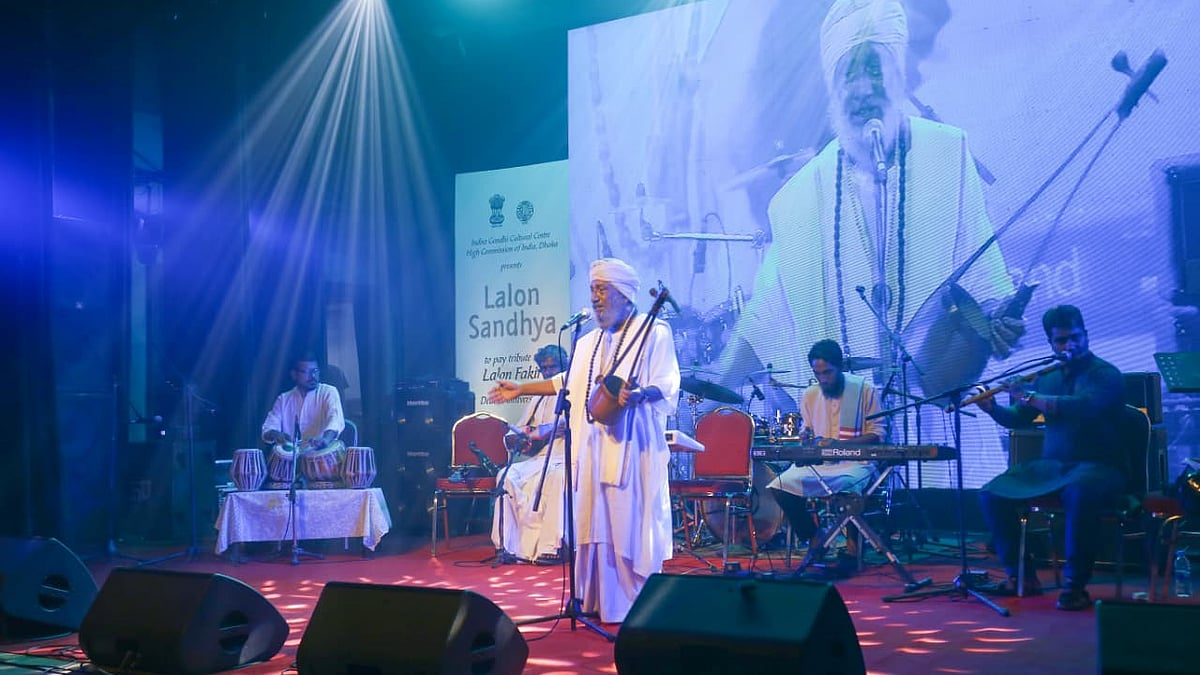
Cultural Segment: The Harmony of Tradition and Modernity
Only performances by Chandana Majumder and Kiran Chandra Roy testified to the continued vitality of Lalon’s tradition in contemporary Bangladesh. Tuntun Baul and his troupe from Kushtia captivated listeners with authentic Baul melodies. Abdel Mannan, essayist of the “Lalon Bishwo Sangh,” delivered an insightful talk on Lalon’s life, teachings, philosophy, and present-day relevance. In the finale, the band “Lalon,” led by Sumi, brought Lalon’s message to younger audiences through a modern musical idiom. The entire evening was hosted by acclaimed actor Afzal Hossain, who threaded together the program’s segments with reflections on Lalon’s life and philosophy.
Why It Remains Relevant Today
Lalon’s songs and words speak of union, not division. At a time of social inequality, violence, and intolerance, his “religion of humanity”—the message of tolerance, equality, and compassion—inspires the youth of both countries to imagine an inclusive future. Farida Parveen’s artistry carried that message in a pure voice for decades.
“Lalon Sandhya” was a heartfelt offering to Fakir Lalon Shah and Farida Parveen, and an earnest celebration of the cultural connection between Bangladesh and India. Through the unity of language, music, philosophy, and tradition, the event further strengthened the shared values of peace, tolerance, and inclusion.
#Lalon_Shah #Lalon_Sandhya #Pranay_Verma #Indian_High_Commission #Indira_Gandhi_Cultural_Centre #Liberation_War_Museum #Farida_Parveen #Baul_Culture #Bangladesh_India_Relations #Cultural_Event


